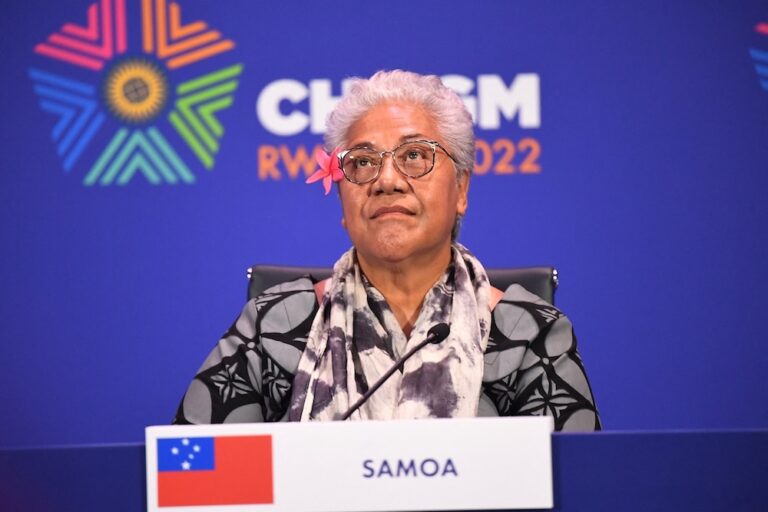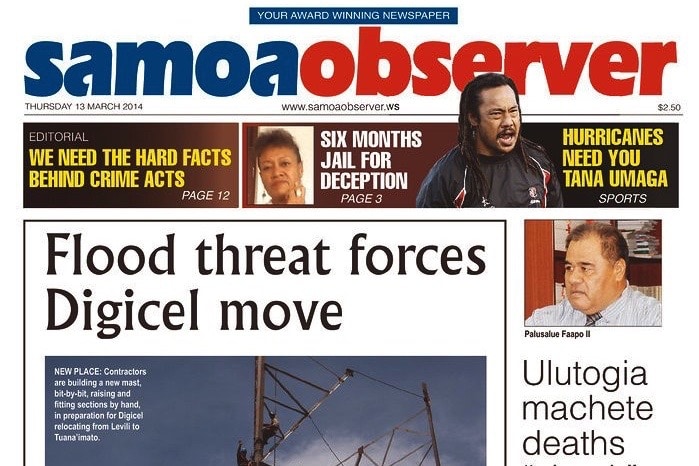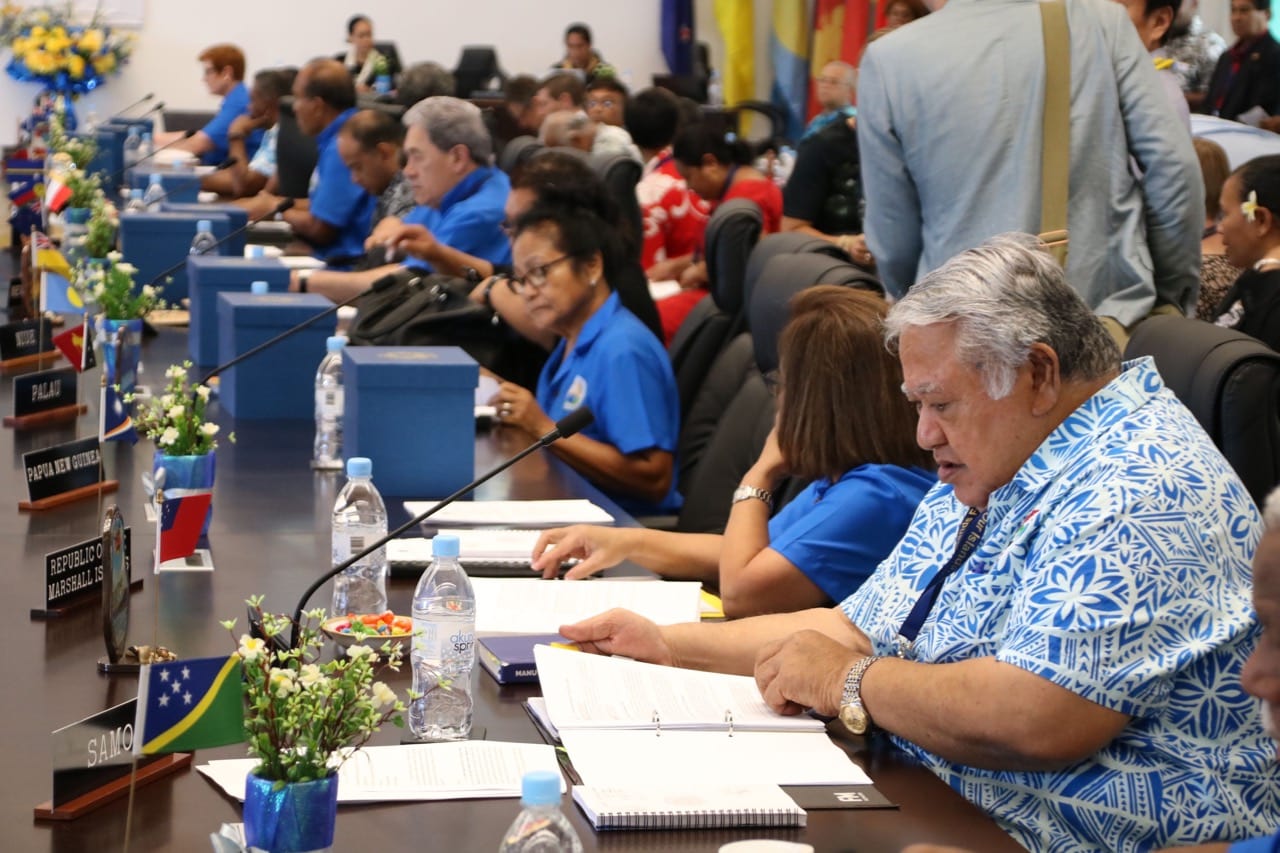(PINA/IFEX) – A judge has ruled in Samoa that the criminal libel claim by the late Prime Minister Tofilau Eti Alesana against the “Samoa Observer” newspaper publisher and a former editor can go ahead. Details of Justice Phillip Moran’s sixty-one-page ruling were reported to PINA by the “Samoa Observer” on 16 April 1999. The judge […]
(PINA/IFEX) – A judge has ruled in Samoa that the criminal libel claim by
the late Prime Minister Tofilau Eti Alesana against the “Samoa Observer”
newspaper publisher and a former editor can go ahead. Details of Justice
Phillip Moran’s sixty-one-page ruling were reported to PINA by the “Samoa
Observer” on 16 April 1999. The judge rejected claims that the criminal
libel charges should not go ahead because they infringed on the
constitutional rights of publisher Savea Sano Malifa and his former Samoan
language editor, Fuimaono Fereti Tupua.
**Updates IFEX alerts of 10 August, 15 July, 22, 20 and 14 May, 30 April, 11
March 1998; and 24, 15, and 4 December, 18 November, 31 October, 12
September, 11 July, 24 June 1997**
Justice Moran said: “I am satisfied that the offence of criminal libel as it
exists in Samoa, a creature of the common law with statutory overlay,
infringes the applicants’ constitutional right to freedom of speech and
expression. That infringement, however, is justified as a reasonable
restriction on the right and is not therefore inconsistent with the
Constitution. I am further satisfied that the offence of criminal libel as
it exists in Samoa does not infringe any of the applicants’ other
constitutional rights. The order staying the hearing of the criminal libel
charge against both applicants is vacated. The matter may proceed to
court.”
Asked for a comment, Malifa said: “This ruling contradicts itself. It says
the criminal libel law in Samoa infringes the applicants’ constitutional
right of freedom of speech and expression. Therefore this law is
unconstitutional and it should be struck out. But then the ruling goes ahead
and says this infringement is justified as a reasonable restriction on that
right and is not therefore inconsistent with the Constitution. If it
infringes the right to freedom of expression, then it is unconstitutional.
If it’s unconstitutional, then it cannot be consistent with the
Constitution. There is no such thing as reasonable restriction on the right
to freedom of expression. This is a right that cannot be restricted.”
Malifa said when the criminal libel trial will be heard is not clear. Since
the charges were first laid Tofilau retired because of health problems and
later died. Tofilau claimed he was criminally libelled in a letter to the
editor published by the newspaper on 6 June 1997. Malifa and Tupua could be
jailed for up to six months if found guilty.
Background Information
The “Samoa Observer”, which was founded by Malifa and his wife Jean, is
Samoa’s only daily newspaper and its main independent news voice. In recent
years, Samoa’s independent news media and journalists have faced increasing
pressure after highlighting stories alleging growing corruption and abuse of
public office. The “Samoa Observer” printing plant was burnt down under
highly suspicious circumstances; Malifa was assaulted by relatives of a
government minister; government advertising was withdrawn from the
newspaper; threats were made to impose newspaper licensing; and a law was
introduced requiring journalists in libel actions to reveal their sources.
The “Samoa Observer” and its staff have faced a series of criminal and civil
libel cases, and injunction actions to prevent them publishing information
(see IFEX alerts).


